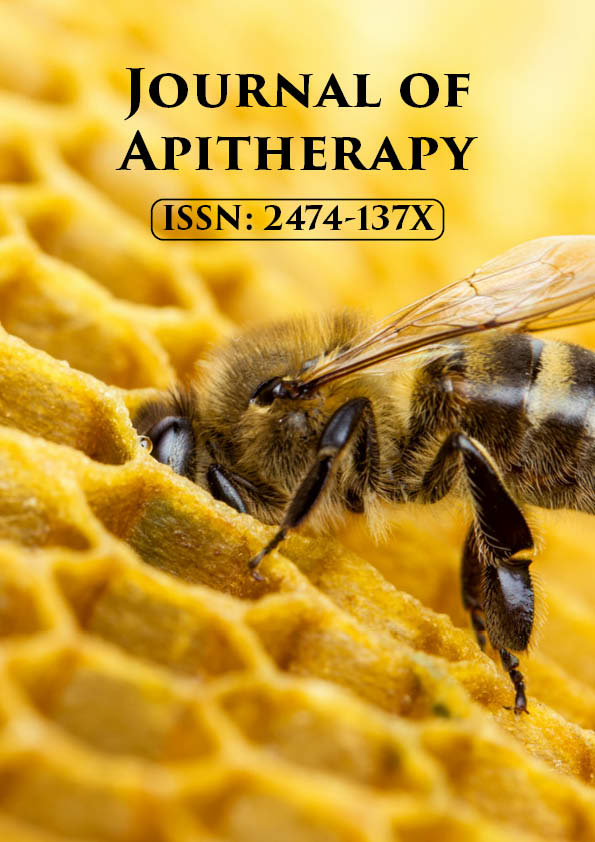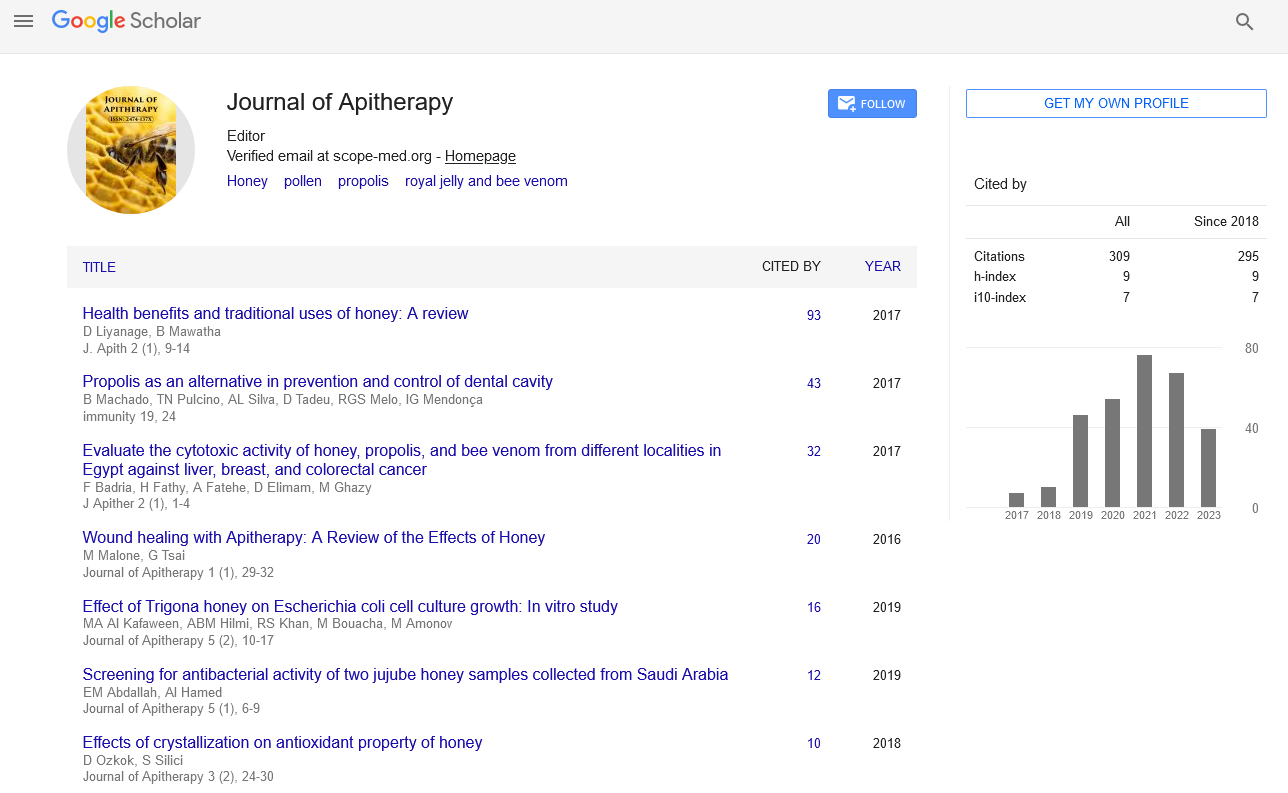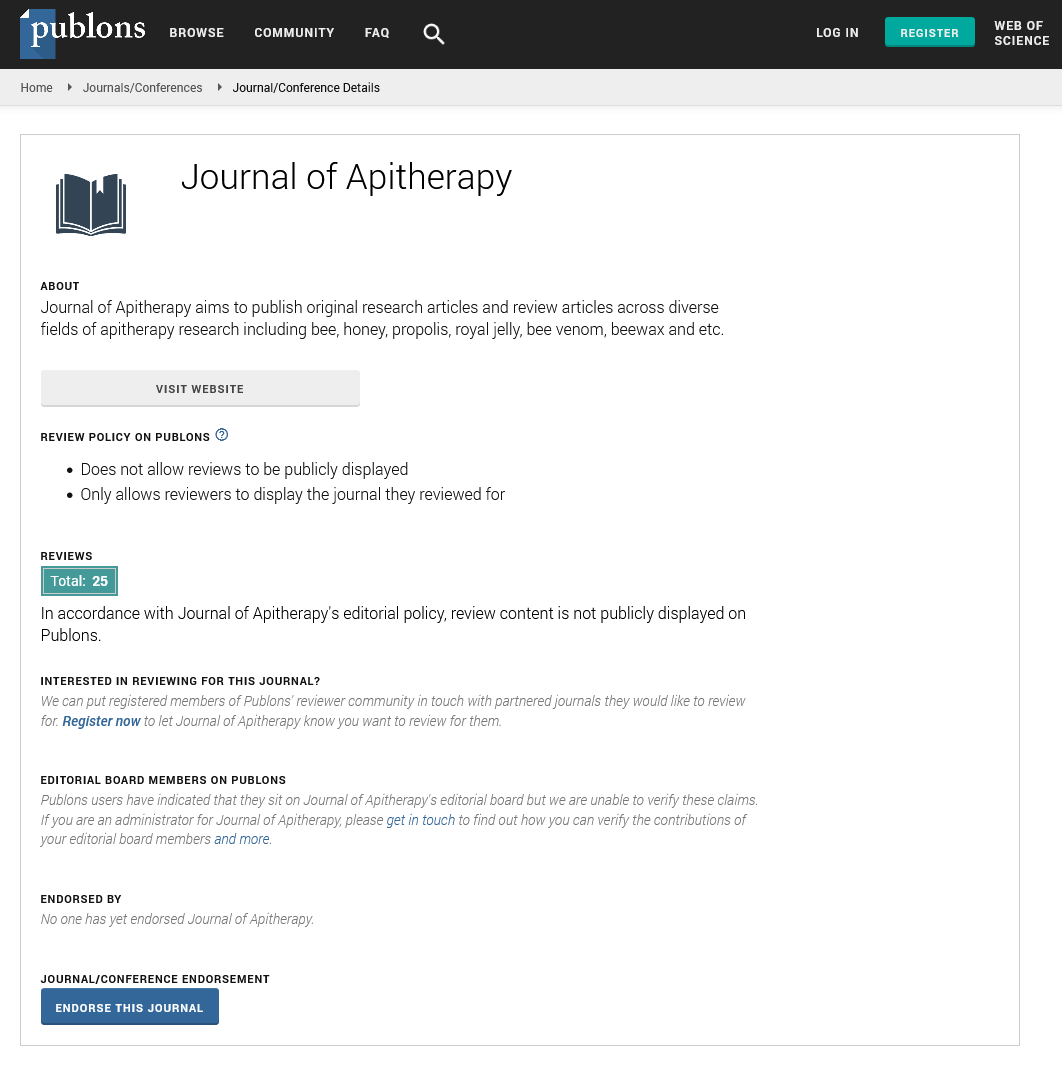Perspective Article - Journal of Apitherapy (2022)
Antimicrobial Potency of Honey for Human Health
Li Zhang*Li Zhang, Department of Animal Science, Fujian Agriculture and Forestry, Fuzhou, China, Email: zhdngle3393@126.com
Received: 05-May-2022, Manuscript No. JAPITHERAPY-22-68300; Editor assigned: 09-May-2022, Pre QC No. JAPITHERAPY-22-68300 (PQ); Reviewed: 24-May-2022, QC No. JAPITHERAPY-22-68300; Revised: 30-May-2022, Manuscript No. JAPITHERAPY-22-68300 (R); Published: 06-Jun-2022
Description
Natural antioxidant chemicals found in honey have a number of positive health impacts. Given the prevalence of urban beekeeping, there is concern among potential consumers regarding the safety and quality of honey produced only in urban areas. Urban honey’s antioxidant capacities haven’t yet been investigated, nevertheless. Adult honey bees’ digestive system bacteria are expected to play a significant part in the breakdown of diets high in sugar. However, it is unclear how nutrition affects the intestinal flora of honey bees. Beekeepers frequently add different types of carbohydrates, such as sucrose and invert sugar, to the natural sources of carbohydrates that honey bees acquire, such as nectar, during times of low floral abundance. We fed bees from a single colony two natural diets—mnuka honey, a monofloral honey with known antibacterial properties, and a hive diet—as well as artificial diets of invert sugar, sucrose solution, and sucrose solutions containing synthesised compounds associated with the antibacterial properties of honey. This allowed us to compare the effect of these sugar supplements on the relative abundance of bacteria in the guts of bees. Industrial agriculture has the potential to significantly alter other productive activities like beekeeping, which is highly reliant on floral resources and ethical pesticide management. We examined the correlations between soybean cultivation area and honey yield in order to gauge the long-term impact of soybean expansion on honey production in Argentina. The honey bee serves as a model for studies on the gut microbiota because it has a straightforward microbiota that generates organic acids from the fermentation of ingested nectar and pollen. Here, we show that the anterior rectum epithelium is partly responsible for the bacterial abundance in the honey bee gut. To learn more about the function of undigested pollen as a microbiota growth substrate and the effects of bacterial fermentation products on honey bee enter endocrine signalling, we used dietary pollen limitation and organic acid feeding regimens. Honey bees are essential to many agricultural and natural environments as major pollinators. The presence of a variety of floral resources is crucial to honey bee health. High-intensity farming, however, may cause a decline in honey bee foraging in many regions of the world. However, to our knowledge, no research have looked into how intensively farmed landscapes affect indicators of individual bee health such nutritional physiology and pathogen loads. Previous studies have looked into how the environment around honey bee hives affects several elements of honey bee health. In addition to sugars, enzymes, amino acids, organic acids, vitamins, minerals, and aromatic compounds, honey is a naturally occurring food. Honey has additional elements that add to its nutritional and physiological benefits in addition to its distinct organoleptic features. The most variable components of honey, proteins, vitamins, minerals, organic acids, and phenolic compounds, are largely to blame for its potent bioactive action. A lesser-known variety of honey called honeydew honey has exceptional antibacterial and antioxidant qualities. It also exhibits prebiotic effects and can encourage the development of probiotic bacteria. When combined with prebiotics, probiotic strains can help avoid foodborne infections. Additional worry has been generated by the concurrent expansion of agricultural crops that depend on bees. In order to better understand the potential stressors affecting bees, there has been an increase in scientific studies. A collection of stressors caused by humans and the environment that harm bees has been identified. Massive monoculture plantings have restricted bee access to a range of pollens and nectars, while habitat degradation has reduced the availability of floral supplies and nesting places for bees.
Copyright: © 2022 The Authors. This is an open access article under the terms of the Creative Commons Attribution NonCommercial ShareAlike 4.0 (https://creativecommons.org/licenses/by-nc-sa/4.0/). This is an open access article distributed under the terms of the Creative Commons Attribution License, which permits unrestricted use, distribution, and reproduction in any medium, provided the original work is properly cited.







